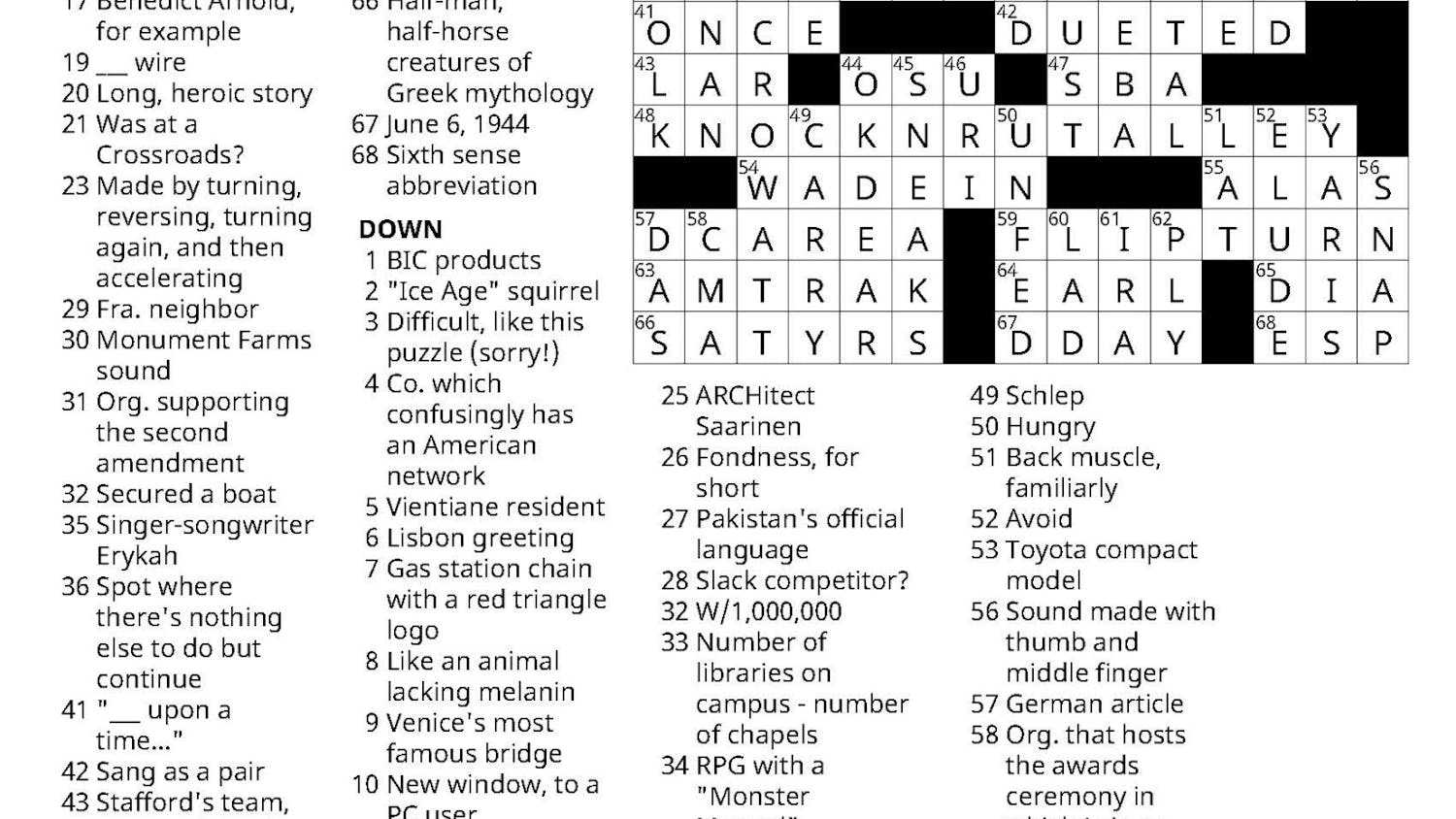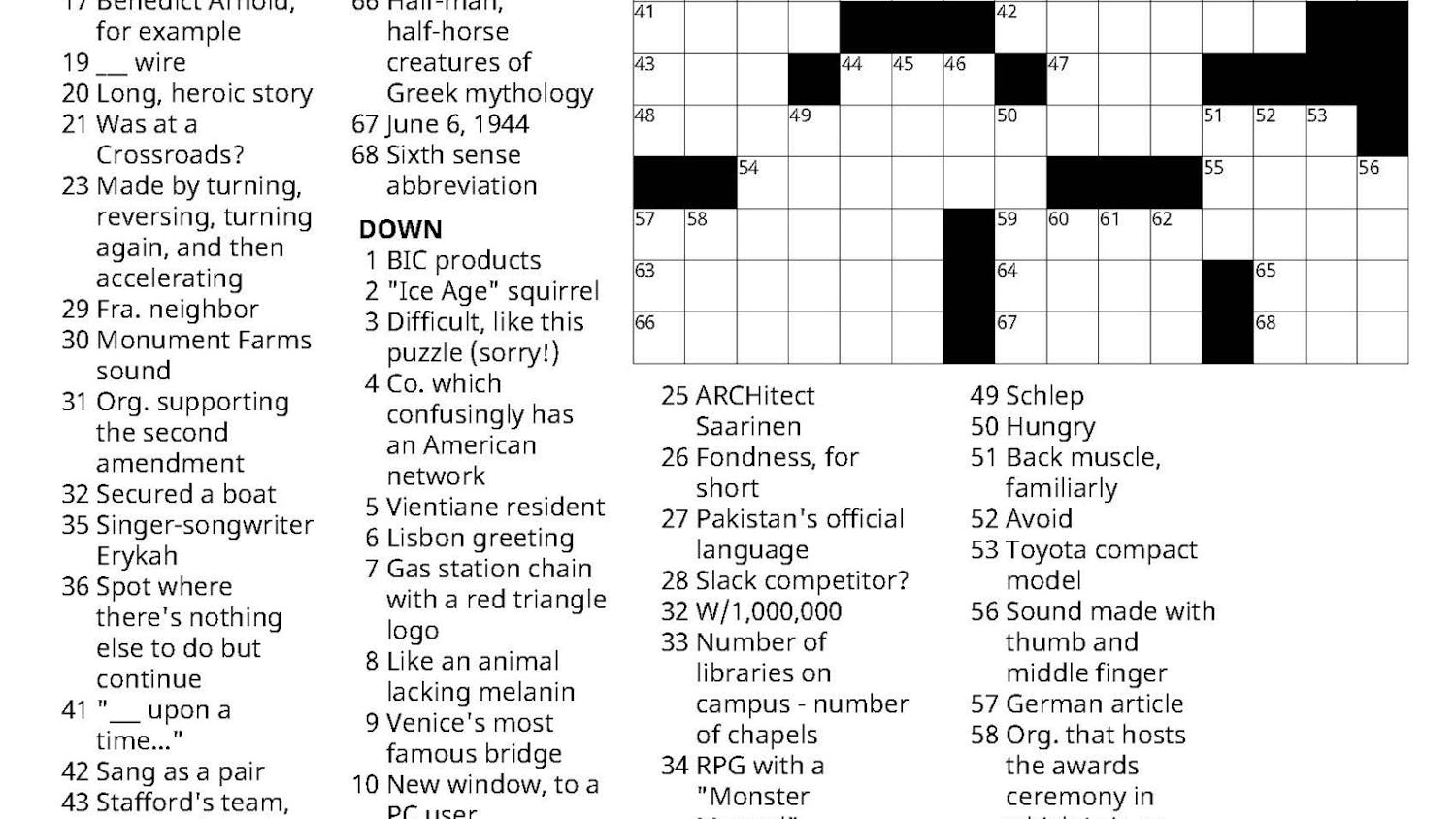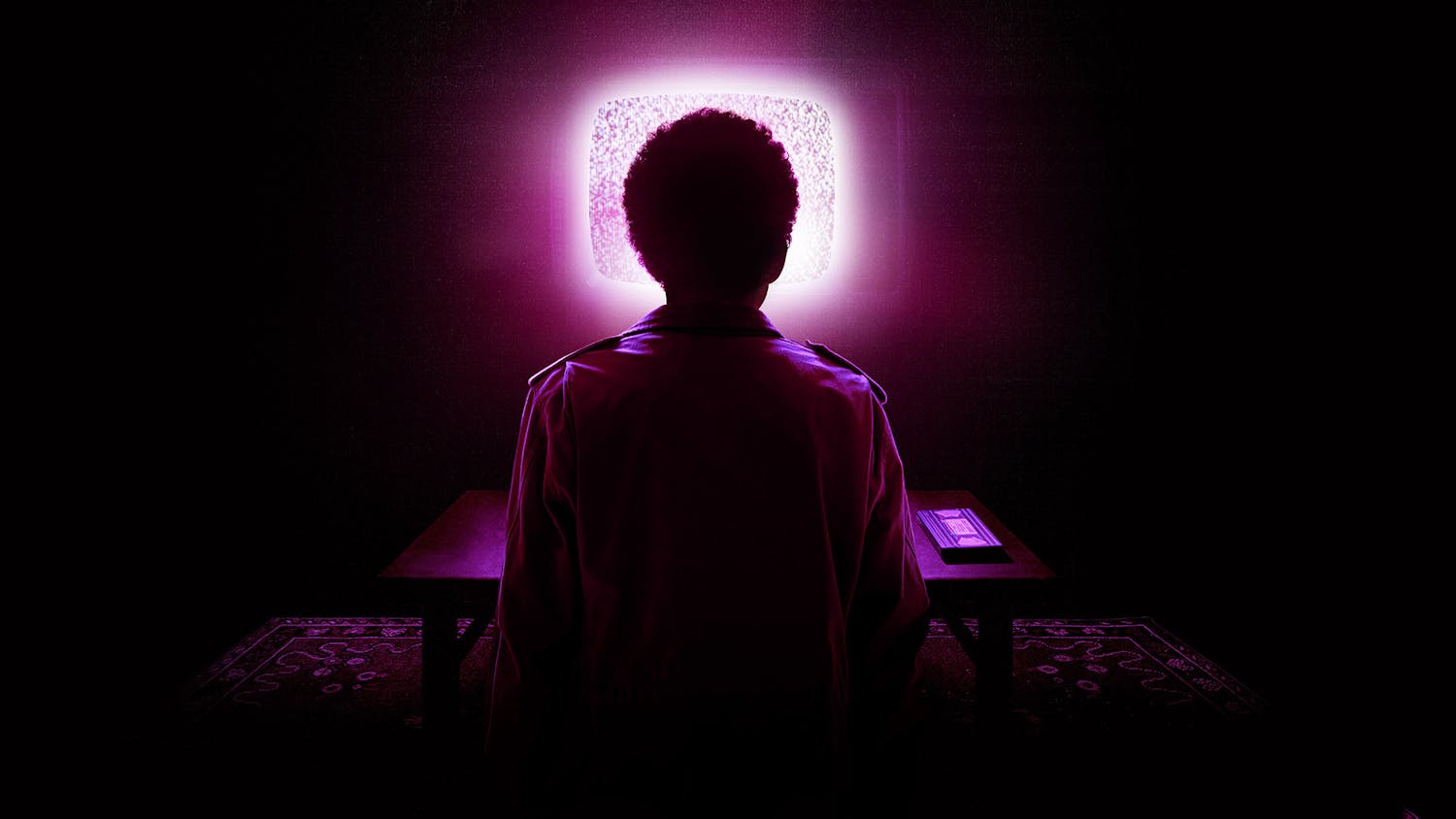Author: Yvonne Chen Staff Writer
"I don't mean to spill my poison more than I ever have!" howls Roberta. She is one of the two lost and wretched lovers in the most recent production staged in the Zoo: John Patrick Shanley's "Danny and the Deep Blue Sea." Contrary to its the cutesy title, "Danny" is unswervingly misleading.
The play opens with a naked stage save for two bar tables and chairs. A young woman drinks away her loneliness in the deserted bar, emptily anticipating an ideal something or somebody to arrive as she puffs away at her cigarette, drenched in a somber blue light the color of the sea. A gangling drunken stranger walks in, clouted with the same high-grade disillusionment, trips over the chair at her table and seats himself in front of a pitcher of beer at the far end of the room.
After an abrupt greeting that takes the form of "Give me some peanuts," the two strangers gradually spill their dirty secrets. The woman is divorced, the mother of a "f****ed up kid" with a "f***ed up mother," is living with her parents and has just engaged in incestuous acts with her father. Danny is a lonely drunkard who falls in and out of bars only to find himself in street brawls despite claiming, "I am peaceful, but people f*** with me."
As one can see, the two characters no longer care about life and have no goals. The corruption in their lives has made them lose faith in any meaningful pursuits of happiness. Although at first looking for a shoulder to cry on, the two strangers find something more and by the beginning of the next act are lying in a bed.
The ensuing course of events between these two characters is an embarkment into the tragedy of trying to live up to an ideal, falling short of it and finally finding strength to just let it happen. After an awkward stab in the dark at the ideal romantic encounter that was never to be, the two lovers get to talking about the ideal romance: birds singing in the morning, big white dress weddings, candle light romances, visions of stars swimming in the ocean of the sky. But all are compliments that fall short of being complimentary. Ultimately, Danny starts to believe in the illusion of love and asks Roberta to marry him to which she awkwardly replies with hesitation and then, "Alright. I mean yes." By the third act however, we learn that last night was just "bull****," and that Roberta was not serious and was only looking for a change of scenery. The ending is the best part.
Jacob Zell Studenroth's '03 direction of "Danny" was notable. I found it interesting how chemistry was blatantly absent between the two actors. However, this absence did not take away from the central idea of the play, which communicates that love has the qualities of both independence and dependency, and that one's destiny encapsulates both the individual and his environment. The dialogue between the two characters, which sounds more like two monologues, functions as a metaphor to the isolation that each feels in relation to the rest of the world. This absence of chemistry also readies the audience for the moment in which they will truly "find each other" amidst the flurry of Danny's paranoid and defensive personality and Roberta's tragically seductive melodrama.
Intriguing also were Studenroth's casting choices, as they were perhaps not what one might have expected of a Middlebury drama production. Damian Washington's '03 performance as Danny entertained and impressed the audience with his spastic gestures; farcical oration, dappled with near genuine moments of sentiment; passion and anger. If there ever were a complaint, it would be that Washington's natural comedic quality came through during some of the more poignant moments of gravity and it had the dissonant effect of provoking laughter from the audience. However the complete opposite of nuance, Washington carried the male role with the deserved energy and spunk necessary of a play with only two roles.
An exchange student from Nottingham University, Julia Bevan breathed new life into the character of Roberta. For one, her British accent added an elegant flair to the role of an otherwise ordinary New Yorker. But more importantly, her performance, consisting of a mix of subtle emotional containment and articulately timed catharsis, served as a foil to Washington's consistently over-the-top performance. She played Roberta with just the right amounts of vulnerability and harshness so that the complexities of her character shone through from beneath the smudged makeup.
As for set design, sometimes a production benefits from limitations. As the actors readied the stage for the following scene's setup, a simple but lush slide show consisting of everyday city scenes and a sound bridge of booming old-school rap between acts provided invigorating transitions of each scene with the next. What's more, the minimal use of props allowed the faithfully recited text to free up the loose performers for more conceptual interpretations of the action, so that ghastly scenes of violence and monologues of self-hatred froze into eerie tableaus.
This student rendition of "Danny and the Deep Blue Sea" could have been just another cliché about two dysfunctional urban kooks' search for true love, but "Danny" was rendered so that the beauty of its deeper meaning was apparent. To be sure, on the surface this play is edgy and raw and all too contemporary and depending on what you prefer, attractive for all these reasons and more. But it is also a play about misdirected passion breaking at the seams, where superficial desire and idyllic romance meet until ultimately one version slays the other.
Relationships Revised, Revisited in 'Danny'
Comments



